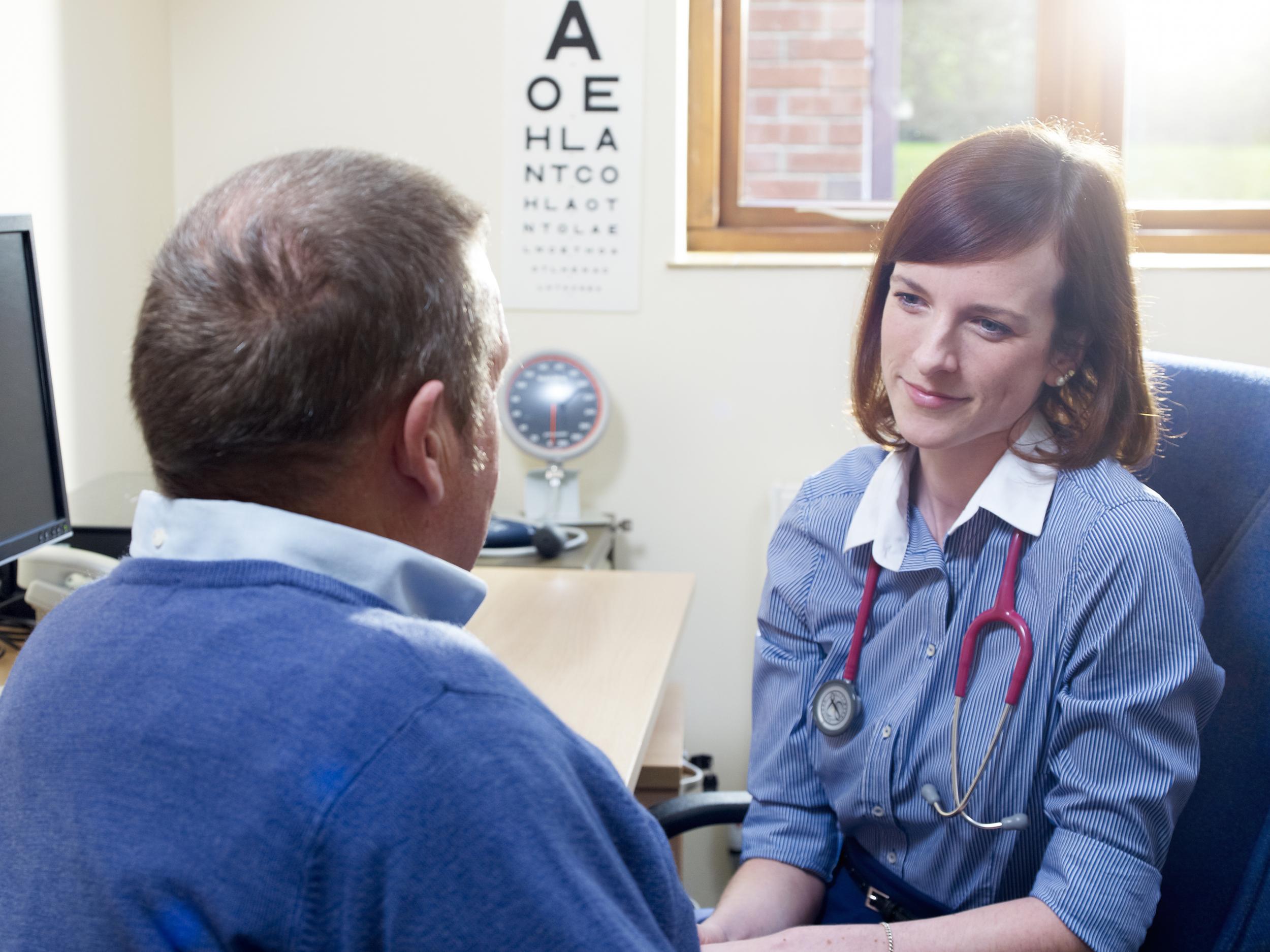Patients at risk as GPs consult three times the ‘safe’ amount each day, new figures reveal
Family doctors report seeing more than 70 patients on exceptional days, despite 25 being safe standard in comparable countries

Your support helps us to tell the story
From reproductive rights to climate change to Big Tech, The Independent is on the ground when the story is developing. Whether it's investigating the financials of Elon Musk's pro-Trump PAC or producing our latest documentary, 'The A Word', which shines a light on the American women fighting for reproductive rights, we know how important it is to parse out the facts from the messaging.
At such a critical moment in US history, we need reporters on the ground. Your donation allows us to keep sending journalists to speak to both sides of the story.
The Independent is trusted by Americans across the entire political spectrum. And unlike many other quality news outlets, we choose not to lock Americans out of our reporting and analysis with paywalls. We believe quality journalism should be available to everyone, paid for by those who can afford it.
Your support makes all the difference.Patients are being put at risk of a missed diagnosis because of the weight of demand on UK GPs as a new analysis reveals they have three times more consultations than would be deemed “safe” in other health systems.
The average NHS general practitioner has 41.5 face-to-face appointments each day, often with another 30 or more telephone appointments on top.
However, a leading European doctors group has recommended that 25 patients a day is the safe limit, and regularly seeing above that number can allow mistakes to creep in.
The findings, from a survey of more than 900 NHS GPs by the doctors’ magazine Pulse, reveal that many doctors have already left full time roles because of fears they could end up harming patients.
One GP partner from East Anglia told Pulse: “I have actually tendered my own resignation as it is making me unwell to work at this pace.” After seeing 42 patients on a “typical day” with as many as 50 phone calls in the afternoons.
Another doctor, who has already left their partnership to work as an employed “salaried” GP, said 13-14 hour days seeing 40 patients had become the norm.
“I felt I was at a risk of making mistakes and causing potential harm to my patients and my career,” they added.
The single worst case was a GP who admitted they had seen more than 70 patients in a single day.
But these accounts do not include the additional work of sending patient referrals, assessing test results and other tasks, which Pulse reports can account for hundreds more patient each day.
The British Medical Association, which negotiates with the Government to set GPs contracts, has said practices should be able to call “black alerts” when their workloads are unsafe.
However, it has yet to put a number on a safe upper limit, and experts say that NHS GPs have “little insight” into how unsustainable their workloads have become.
“Around 25 contacts is safe,” Dr Mary McCarthy, a Shropshire GP and vice-president of the European Union of General Practitioners (UEMO).
“NHS GPs have little insight into how hard they are working.”
UEMO surveyed family doctors from 25 European nations and highlights that most countries recommend GPs see more complex patients for longer than the standard 10 minutes.
Findings last year showed GPs increasingly turning to drink and drugs to manage work stress, but the UEMO found this was less of a problem where GPs had fewer than 25 contacts a day – which includes calls, appointments and home visits.
Dr Richard Vautrey, who chairs the BMA’s GP committee, said unmanageable workload “is the primary reason doctors are leaving general practice” and this was also exacerbating the demand problem.
“The BMA has called for practices to be empowered to set their own capacity limits for safe working, which includes limiting the number of consultations per day.
“We have also highlighted the need for an alert system for practices to use, as hospitals already do, to report when a practice has reached capacity and needs to take urgent steps to address this.”
Commenting on the poll, Professor Helen Stokes-Lampard, chair of the Royal College of GPs, said: “This survey backs up what the college has been saying for years – that many GPs and our teams are regularly working way beyond what could be considered safe for patients, and potentially jeopardising our own health and well-being.”
NHS England was approached for comment.
Join our commenting forum
Join thought-provoking conversations, follow other Independent readers and see their replies
Comments